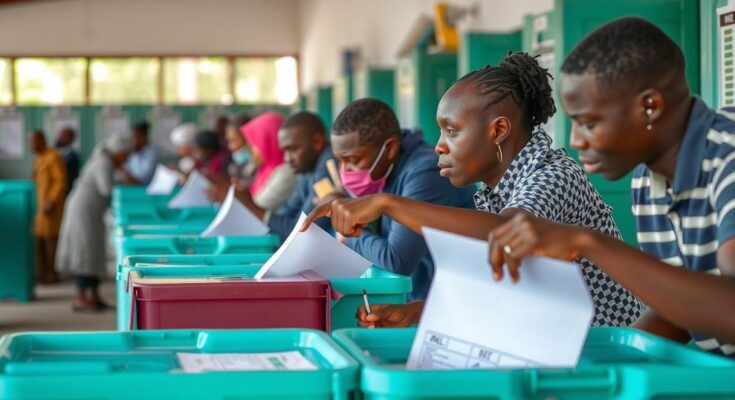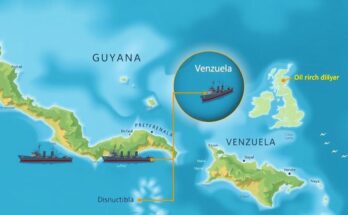Voters in Comoros are casting ballots for the 33-seat parliament amidst claims of electoral fraud surrounding President Azali Assoumani’s prior re-election. His son has been granted influential governmental powers, raising concerns of nepotism. Despite calls for a boycott from some opposition groups, others contend that voter participation can expose systemic flaws. Results are anticipated by Friday.
Voters in the Comoros are participating in parliamentary elections for the archipelago’s 33-seat parliament, following the contentious re-election of President Azali Assoumani last year, which the opposition claims was marred by significant irregularities. On Sunday morning, polling stations opened for approximately 338,000 registered voters. The Supreme Court has sanctioned nearly 100 candidates for this election, occurring since the last parliamentary elections in January 2020.
President Assoumani, in power since a coup in 1999 and having won three elections subsequently, faces accusations from opponents of authoritarianism. Critics also suspect that he is positioning his eldest son, Nour El-Fath, to succeed him post-2029, particularly after granting him substantial powers in 2024 to oversee governmental operations. While some opposition factions, including the Juwa party, have called for an election boycott, others believe participation could expose the regime’s weaknesses further.
As results are anticipated by Friday, Hamidou Karihila of the Hope of the Comoros party articulated a sentiment among many opposition members, indicating that participating in these elections could highlight the government’s flaws and precipitate its decline: “The Azali regime is weakened … by participating in these elections we are contributing to further exposing the flaws in its system and accelerating its inevitable fall.”
The Comoros, an Indian Ocean archipelago, has a tumultuous political history characterized by coups and allegations of electoral fraud. President Azali Assoumani has been a dominant figure since 1999 and has survived three electoral contests, yet he faces increasing scrutiny for alleged authoritarianism. The current elections follow accusations that his prior re-election was beset by irregularities, thus underscoring a critical moment in Comoros’ political landscape. The upcoming results could further define the opposition’s strength and the ruling party’s stability.
In summary, the parliamentary elections in Comoros represent a significant event in the country’s political landscape, marked by accusations of authoritarianism against President Assoumani and challenges from opposition groups. With a substantial number of candidates and a considerable voter base, the results, expected by Friday, may indicate the future direction of power within the Comoros and the viability of the opposition in confronting the current regime.
Original Source: www.begadistrictnews.com.au




